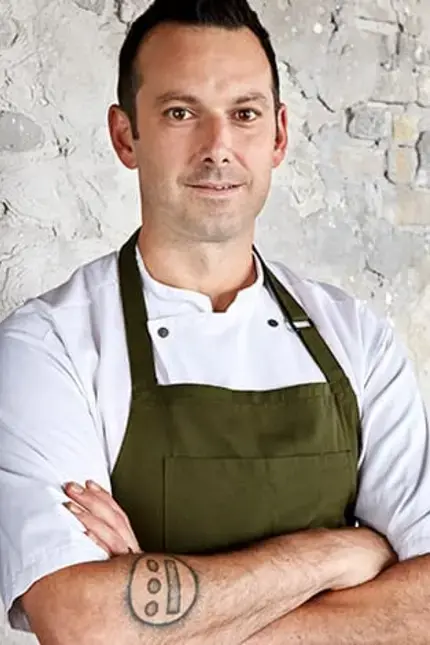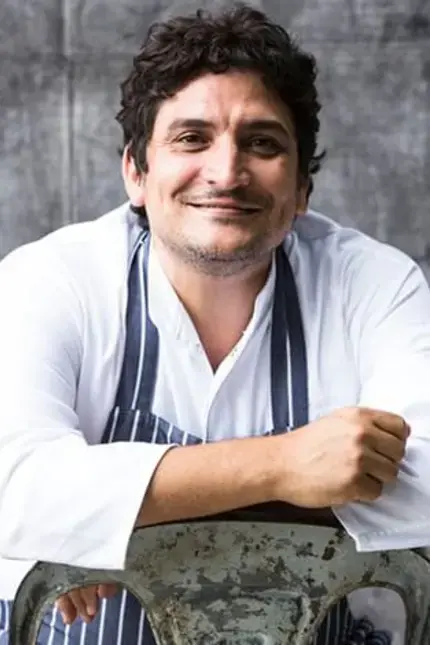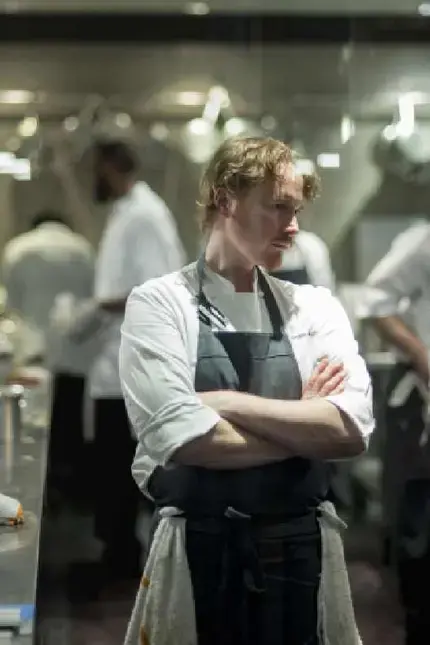Born in 1974 on the Pine Ridge Indian Reservation in South Dakota, Sherman is a member of the Oglala Lakota Sioux tribe. He grew up on his parents' farm and remembers roaming the prairies, hunting, and foraging for berries. He also remembers the unhealthy government-supplied industrial foods that dominated culinary life on the reservation.
Sherman worked in a series of Minneapolis restaurants in his 20s, rising to the rank of executive chef by the age of 27. While in Mexico a few years later, he had an epiphany that prompted a mission to discover and disseminate the food traditions of his ancestors. To this end, in 2014 Sherman founded The Sioux Chef, an indigenous food education business and caterer. Then in 2017 he co-founded the non-profit North American Traditional Indigenous Food Systems (NATIFS) and its Indigenous Food Lab, dedicated to promoting Native cuisine. In 2021, he co-founded the indigenous restaurant Owamni in Minneapolis.
In 2019, Sherman received a James Beard Foundation Leadership Award, which recognizes those working to change the world of food for the better. In 2023, he won a Julia Child Award in recognition of his impact on the American culinary scene. The same year, he made TIME’s list of 100 Most Influential People.
Restaurant
The name Owamni comes from the Native name for the site on which this downtown Minneapolis restaurant stands, ‘Owamniyomni’. It translates as ‘place of the swirling waters,’ a reference to the waterfalls that were dammed to support the milling industry in what is now at St Anthony Falls. The restaurant is in fact housed in the 19th century Columbia flour mill.
Opened in 2021 by Sherman and his then partner, Dana Thompson, Owamni is not only an indigenous restaurant showcasing pre-colonial recipes and ingredients, but also a focal point for Native American culture and community. A red neon sign inside the restaurant reminds guests “You are on Native Land.” The majority of the restaurant’s staff is Native American, the ingredients used in its dishes are sourced predominantly from indigenous producers, and every opportunity is taken to alert diners to the plight of indigenous communities. The restaurant also houses the non-profit activities of North American Traditional Indigenous Food Systems (NATIFS) and the Indigenous Food Lab.
In September 2023, Owamni was acquired by the non-profit NATIFS, enabling it to dedicate more resources to hands-on training, guest chefs, indigenous food R&D, and producer spotlights.
Owamni was named Best New Restaurant in 2022 by the James Beard Foundation and included in USA Today’s 2024 Restaurants of the Year list.
Recipes and dishes
Sherman’s culinary philosophy is based on what he calls the “decolonized diet.” This means avoiding foodstuffs introduced to North America by European settlers, such as wheat flour, cane sugar, dairy products, beef, pork, and chicken. His aim is for diners to experience the continent’s authentic flavors based on pre-colonial food systems, using ingredients sourced from indigenous food producers locally and nationally.
Respecting the seasons and the land, his menus feature traditional ingredients such as bison, wild game, and fish, as well as hand-harvested wild rice, foraged plants, and heirloom grains. Drawing on his ancestors’ knowledge and techniques, he creates innovative dishes that are local, seasonal, healthy, and flavorsome.
Examples include amaranth tostadas with a dip made from tepary beans and smoked trout, a crispy cricket seed mix with chili and maple, and bison tartare garnished with wasna and curled crackers made of wild rice and teosinte, an ancestor of corn.
In 2017, Sherman co-authored The Sioux Chef's Indigenous Kitchen, containing recipes created by interviewing older members of his community and researching traditional Lakota foods in the archives. The book won the 2018 James Beard Award for Best American Cookbook.










